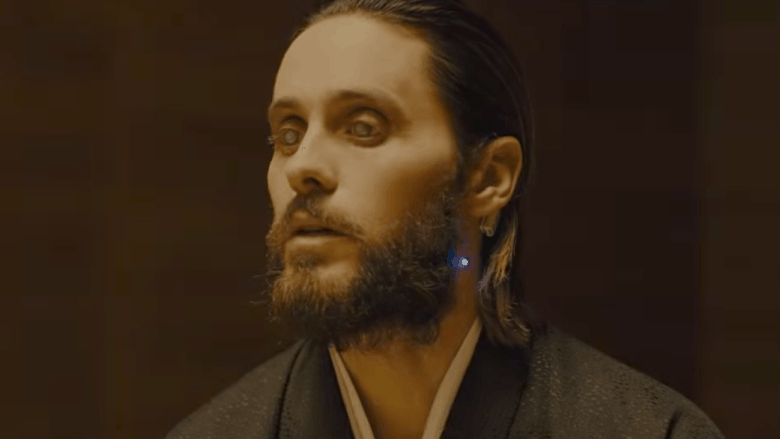
Director: Denis Villeneuve
MPAA Rating: R
Runtime: 163 minutes
Blade Runner 2049 is the kind of movie that is not easy to talk about in a review. While the studio and director have asked critics not to reveal certain details to audiences, that warning was not necessary. The premise of 2049 changes dramatically as the film unfolds. What we believe about the characters’ fundamental identities is never stable. The most I can say is that Ryan Gosling is a blade runner, his boss (Robin Wright) has him searching out replicants, Jared Leto is a megalomaniac also searching for those replicants, and Deckard (Harrison Ford) eventually shows up.
While those statements are factual, they are hardly what 2049 is “about.” Rather, it is about diving deeper into the subject of humanity and how we justify removing that status from different classes of people. It is about how people relate to each other and their technology. It is about parenthood and community leadership. It is about the impact of individual and collective memory on contemporary decisions. It is about ego, and the human drive to be God.
2049 is an act of philosophy in the way only the best films ever can be, and that requires the kinds of astonishing filmmaking the creators bring to the table. In their third collaboration, Denis Villeneuve and Roger Deakins roll out the greatest hits of high contrast photography and beautifully expressive close-ups to give the film more of an emotional wallop than its predecessor. Ryan Gosling gives the best performance of his career. Jared Leto is finally put to good use as the pretentious egocentric personality that he is. The visual effects team created the best scene in the history of digital cinema (and this is not hyperbole). The supporting cast is universally great, with standouts going to Robin Wright, Mackenzie Davis, Ana de Armas, and Sylvia Hoeks.

And then there is Harrison Ford. When Star Wars: The Force Awakens was released I was supremely disappointed in Ford’s performance. For a film set so long after our last encounter with the iconic Han Solo, I felt like Ford was pretending to still be Han Solo at age twenty-five rather than letting the character age. Deckard does not have that problem. While I would probably credit a better director for part of this performance, what Ford manages to do is nothing short of breathtaking.
He brings a naturalism to the role that seeps into the cracks of his aged and beaten face, letting us see the young Deckard in flashes before it sinks back to the deep cynicism that has grown from decades of solitude. In 2015, Sylvester Stallone gave that kind of performance in Creed, and he should have won the Oscar. If Ford isn’t at least nominated for this performance they will have missed another opportunity to reward a giant returning to the top of his game.
What problems the film does have couldn’t bother me as I was dumbfounded and brought to tears, but they are worth noting nonetheless. The cast is still overwhelmingly white and the narrative focus is still overwhelming on the male characters. This is particularly noteworthy as Jared Leto’s character advocates for the necessity of a slave class for the progress of society. The way nudity and violence against some of the women is portrayed could be seen as returning to tropes of damsels in distress and the casual disposability of female bodies. These are valid concerns that could take someone out of the movie, but they actually contribute to the reason that 2049 will resonate long into the future.

Blade Runner 2049 is the kind of movie that university students will be writing papers on for decades to come. This isn’t your average bro, “it’s so deep, man” type of film though. This is not Fight Club, American Psycho, or Inception where the depth and complexity fade after a first viewing into simple entertainment. Rather, this is like 2001: A Space Odyssey, A Serious Man or, yes, Blade Runner.
A film that resists easy understandings. A film that is open to endless intertextual reading when examined in light of its source material, director, cinematographer, and stars. A film whose flaws reflect deep flaws in society. A film that tries to tell us something novel about ourselves. A film that invents and re-invents film form and language to shake you to your very core, if you’ll only let it.
Make no mistake, Blade Runner 2049 is at least as good as Blade Runner, and only time will tell if it reaches the legendary status of its predecessor. But the most impactful moments in this film are in a different class than anything in Ridley Scott’s original. They distinguish it as its own film, and justify its existence as a sequel in the age of the remake, reboot, and franchise.






